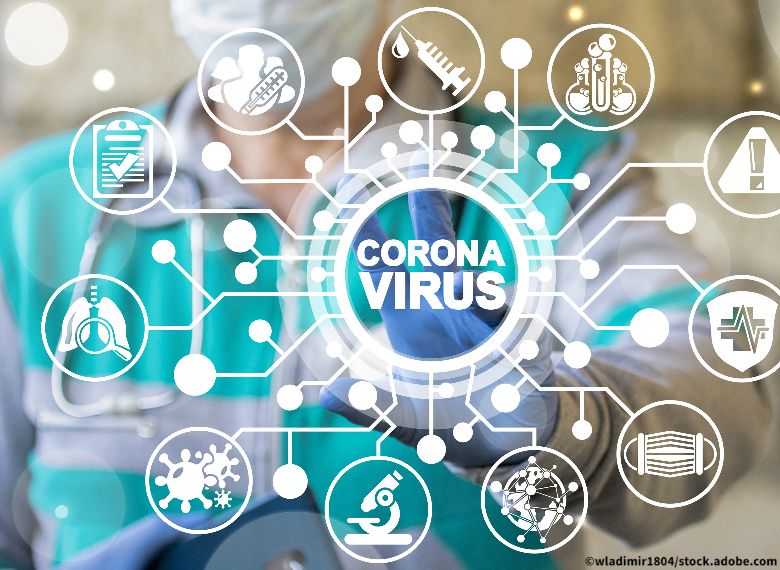- Clinical Technology
- Adult Immunization
- Hepatology
- Pediatric Immunization
- Screening
- Psychiatry
- Allergy
- Women's Health
- Cardiology
- Pediatrics
- Dermatology
- Endocrinology
- Pain Management
- Gastroenterology
- Infectious Disease
- Obesity Medicine
- Rheumatology
- Nephrology
- Neurology
- Pulmonology
Machine Learning Being Used to Predict Heart Damage in COVID-19 Patients
Johns Hopkins researchers received a grant to use machine learning to detect COVID-19 patients who are at risk of adverse cardiac events.

Researchers from Johns Hopkins University recently received a $195 000 Rapid Response Research grant from the National Science Foundation to use machine learning to detect which patients with novel coronavirus disease 2019 (COVID-19) are at risk of adverse cardiac events.
This comes as increasing evidence shows COVID-19 has a negative impact on the cardiovascular (CV) system that puts patients at risk for adverse events such as heart failure, sustained abnormal heartbeats, heart attacks, cardiogenic shock, and death. Currently there are no predictive capabilities that allow clinicians to stratify that risk.
“As a clinician, major knowledge gaps exist in the ideal approach to risk stratify COVID-19 patients for new heart problems that are common and may be life-threatening. These patients have varying clinical presentations and a very unpredictable hospital course,” said the project’s clinical collaborator Allison Hays, MD, associate professor of medicine, Johns Hopkins University School of Medicine’s Division of Cardiology, in a university press release. “This project aims to help clinicians quickly risk stratify patients using real time clinical data, with the goal of widely disseminating this knowledge to help medical practitioners around the world in their approach to treating and monitoring patients suffering from COVID-19.”
The first phase of the 1-year project just received IRB approval for COVID-19 patients admitted to Suburban Hospital and Sibley Memorial Hospital within the Johns Hopkins Health System (JHHS).
This project aims to help clinicians quickly risk stratify patients using real time clinical data, with the goal of widely disseminating this knowledge to help medical practitioners around the world in their approach to treating and monitoring patients suffering from COVID-19.
In this phase, researchers will collect the following data from >300 COVID-19 patients, which will then be used to train the algorithm:
- Electrocardiogram
- Cardiac-specific laboratory tests
- Continuously obtained vital signs (eg, heart rate, oxygen saturation)
- Imaging data (eg, CT scans, echocardiography)
Researchers will then test the algorithm with data from COVID-19 patients with heart injury at JHHS, other nearby hospitals, and perhaps some in New York City.
The overarching goal? To create a predictive risk score that can determine up to 24 hours in advance which patients are at risk of developing adverse cardiac events. For new patients, the model will also perform a baseline prediction that gets updated each time new health data becomes available.
According to researchers, this approach will be the first to predict COVID-19-related CV outcomes and, while similar studies do exist, previous research has focused on predictions of general COVID-19 mortality or a patient’s need for intensive care.
With the machine learning model, researchers will be able to analyze multiple sources of data to produce a risk score that is continuously updated as they get new data. Also, the project will aid in determining which biomarkers are most predictive of adverse clinical outcome.
Once the algorithm is created and tested, researchers will make it widely available to interested health care institutions to implement.
“By predicting who’s at risk for developing the worst outcomes, health care professionals will be able to undertake the best routes of therapy or primary prevention and save lives,” said principal investigator Natalia Trayanova, PhD, in the same press release.
For more COVID-19 coverage for primary care, visit our COVID-19 Resource Page.
No Rx Required for COVID-19 Vaccination But ACIP Calls for Better Informed Consent Process
September 22nd 2025The ACIP on September 19 narrowly voted against requiring a prescription to get the shot but urged more detailed discussion of vaccine risks during shared decision making conversations.
